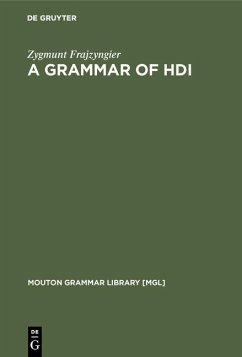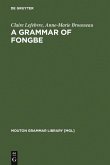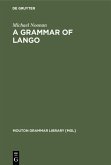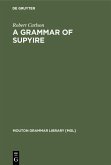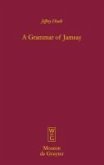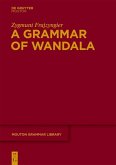Hdi is a hitherto undescribed language spoken in northern Cameroon. The language belongs to the Central Branch of Chadic. The aim of the book is to provide a fairly complete description of the grammar of this language. Consequently, the grammar describes the phonology, morphology and syntax of Hdi and the semantic and discourse functions coded in this language. Most clauses in Hdi are verb-initial, with the subject directly following the verb. The object is often marked by a preposition. What makes Hdi unusual is that the object-marking preposition is unique and does not function elsewhere as a locative preposition. Another interesting feature of Hdi is that there are two types of clauses, pragmatically independent and pragmatically dependent, and that the difference between these is coded by different tense and aspectual systems. In addition, there are two clausal orders for complex sentences: The order embedded clause-matrix clause codes one type of modality, while the order matrix clause-embedded clause codes another. The language also has a rich system of verbal extensions coding the semantic roles of arguments and adjuncts and the direction of movement.
The grammar is of interest not only to linguists working in African, Chadic and Afroasiatic linguistics, but also to general linguists, since it describes phenomena rarely seen in other languages of the world. The grammar is described in terms accessible to linguists working within various theoretical frameworks.
Dieser Download kann aus rechtlichen Gründen nur mit Rechnungsadresse in A, B, BG, CY, CZ, D, DK, EW, E, FIN, F, GR, HR, H, IRL, I, LT, L, LR, M, NL, PL, P, R, S, SLO, SK ausgeliefert werden.

